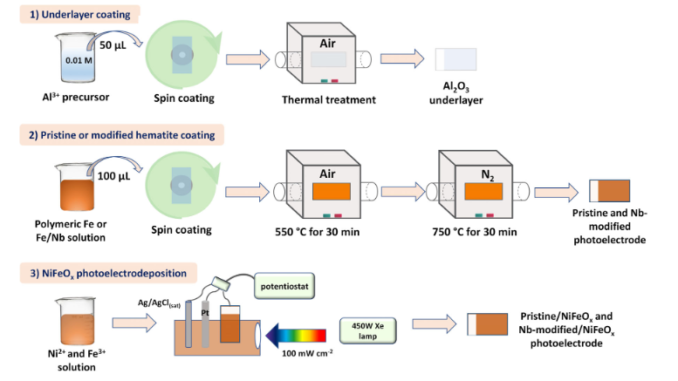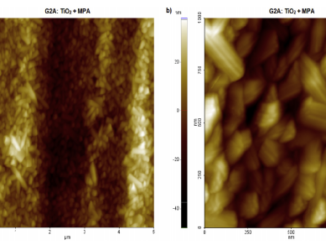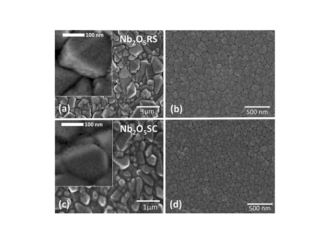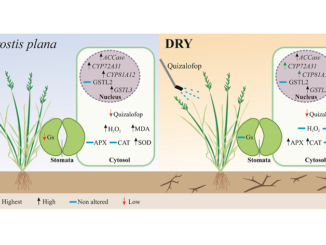
On electron loss lowering at hematite photoelectrode interfaces
Abstract: Photoelectrodes nanoscale interface design has become a key factor to enhancing their photoelectrochemical performance for water splitting by reducing the photogenerated charge recombination, thus ensuring their efficient separation, transport, and collection. In this work, hematite (α-Fe2O3) photoanodes were prepared from a simple and scalable methodology capable of synergistically mitigating the charge loss and recombination at all interfaces (i.e., fluorine-doped tin oxide/hematite, hematite/hematite, and hematite/electrolyte) and achieving overall efficiency of ∼50% for the water oxidation reaction compared to pristine photoelectrodes. The external quantum efficiency at 1.23 V versus reversible hydrogen electrode of pristine hematite was enhanced 6.7 times with the modifications of the three interfaces (Al2O3/NbH/NiFeOx). Electrochemical impedance spectroscopy and intensity-modulated photocurrent spectroscopies were applied to probe and monitor the photogenerated charge carrier dynamics revealing a substantial improvement in charge separation and collection at the back-contact interface as well as a partial mitigation of the surface states at the hematite–electrolyte interface.
Author(s): Bedin, K.C.; Rodríguez-Gutiérrez, I.; Peregrino, L.R.P. ; Vayssieres, L.; Souza, F.L.
J Am Ceram Soc.
Published: 27 March 2022
DOI: https://doi.org/10.1111/jace.18460
CDMF
The CDMF, hosted at the Federal University of São Carlos (UFSCar), is one of the Research, Innovation and Dissemination Centers (RIDC) supported by the São Paulo State Research Support Foundation (Fapesp), and also receives investment from the National Council Scientific and Technological Development (CNPq), from the National Institute of Science and Technology of Materials in Nanotechnology (INCTMN).




